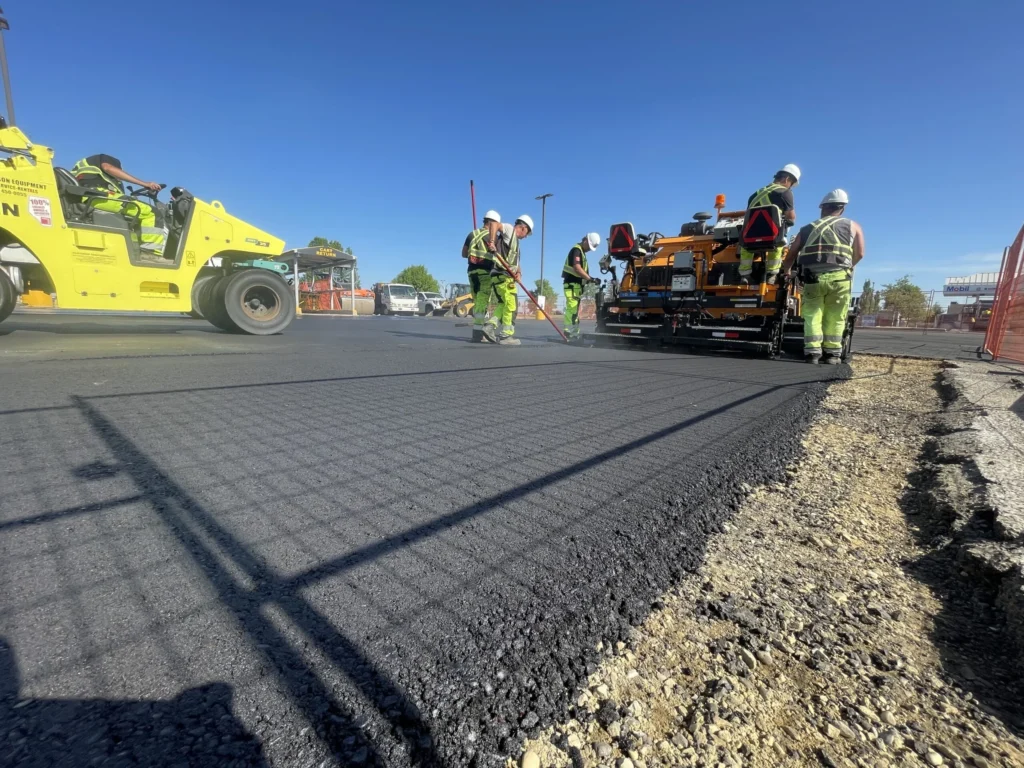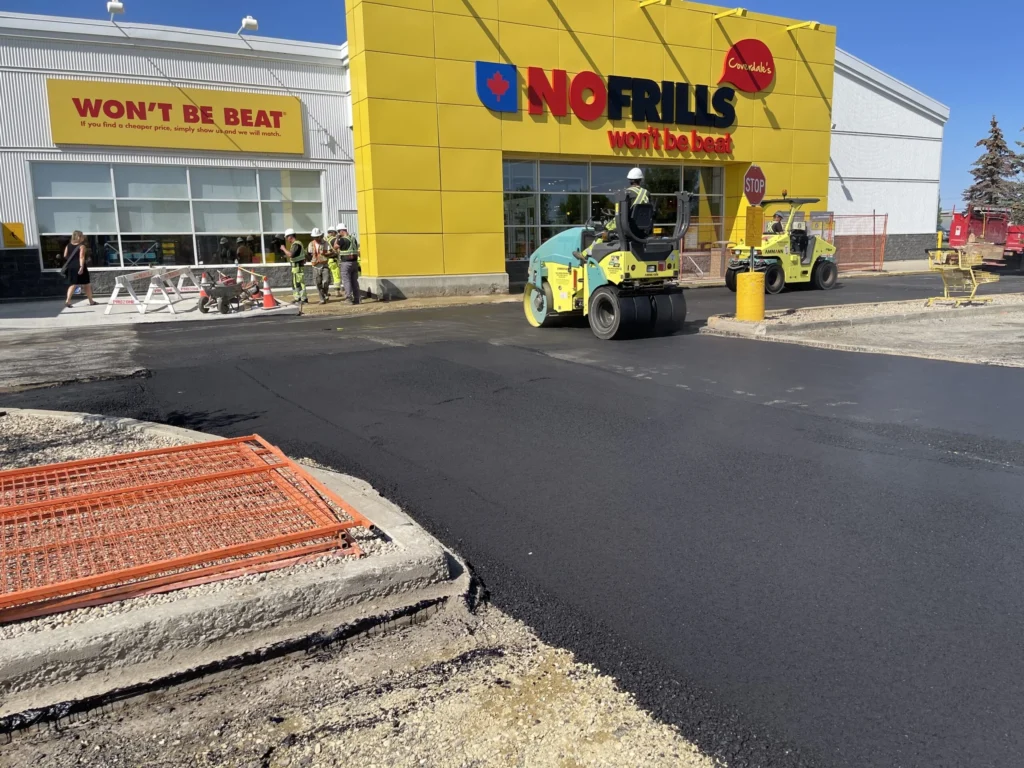Asphalt roads are the backbone of modern infrastructure, providing smooth, safe, and durable surfaces for vehicles across Canada. They are made from a mixture of aggregates like crushed stone, sand, and bitumen, a sticky black petroleum-based binder that holds everything together. Asphalt roads are known for their flexibility, quick installation, and ease of maintenance, making them the preferred choice for highways, city streets, and residential areas. Their cost-efficiency and recyclability further enhance their value, especially in climates that experience extreme temperature fluctuations.

Table of contents
Why Is Asphalt Better Than Concrete?
In Canada’s challenging weather conditions, asphalt roads outperform concrete in flexibility and adaptability. While concrete can crack during freeze-thaw cycles, asphalt expands and contracts without major structural damage. This resilience reduces the need for full reconstruction and makes asphalt repair faster and more affordable. Another major advantage is the speed of installation since asphalt surfaces can be laid and reopened to traffic within hours, minimizing disruption. The dark color also absorbs heat, helping to melt snow and ice faster, improving safety during the long Canadian winters. Overall, asphalt offers longevity, comfort, and sustainability in one cost-effective package.
Asphalt’s Cost and Maintenance Advantages
Compared to concrete, asphalt roads have lower initial and long-term maintenance costs. When damage occurs, asphalt repair involves milling and resurfacing rather than replacing the entire section. This process uses reclaimed materials, reducing environmental impact and cost. Furthermore, asphalt pavements are quieter to drive on and more comfortable, improving the overall driving experience. For municipalities and contractors, these benefits translate into long-term budget savings and reduced carbon emissions. The simplicity of asphalt repair also allows for quick responses to weather-related wear, ensuring roads remain smooth and safe year-round.
What Is Called Asphalt?
Asphalt is a blend of natural or refined bitumen combined with aggregates to form a durable, flexible paving material. It is sometimes referred to as bituminous concrete, emphasizing its cohesive nature. In Canada, asphalt is widely used for everything from major highways to rural driveways due to its versatility. The material’s ability to be reheated and reused makes it a top choice for sustainable construction. It is engineered to meet local climate demands, from withstanding the intense cold of northern provinces to managing the heavy traffic in urban centers. Its consistent performance ensures reliability in both new projects and ongoing maintenance.
Asphalt in Modern Infrastructure
Asphalt roads are a vital part of Canada’s transportation network, supporting daily travel and economic growth. They are used not just for vehicle roads but also for airport runways, parking lots, and cycling paths. The process of concrete construction preparation often goes hand in hand with asphalt paving, ensuring strong foundations and durable surfaces. By combining proper groundwork with advanced asphalt technology, contractors can extend road life and minimize future repairs. Innovations like warm-mix asphalt and recycled content also make modern asphalt roads more eco-friendly than ever before.
What Is Pavement vs. Asphalt?
The term “pavement” refers to any hard surface built for traffic, including materials like concrete, stone, or asphalt. Asphalt, however, specifically describes a pavement type using bitumen as a binder. In Canada, most paved roads are asphalt due to its cost efficiency and speed of application. Pavement projects often start with concrete construction preparation, where the sub-base is stabilized before laying the asphalt layer. This ensures proper drainage, strength, and smoothness. While concrete pavements can be ideal for certain heavy-duty applications, asphalt remains the go-to for its flexibility, recyclability, and ease of upkeep.
Building Sustainable Pavements
Environmental responsibility is a growing priority in the road construction industry. Asphalt roads are 100 percent recyclable, meaning old surfaces can be milled, reheated, and reused to create new layers. This reduces waste and the need for new raw materials. During concrete construction preparation, sustainable methods like using reclaimed aggregates and warm-mix technologies further reduce emissions. Combined, these practices make asphalt one of the most sustainable and future-ready paving materials in Canada.

